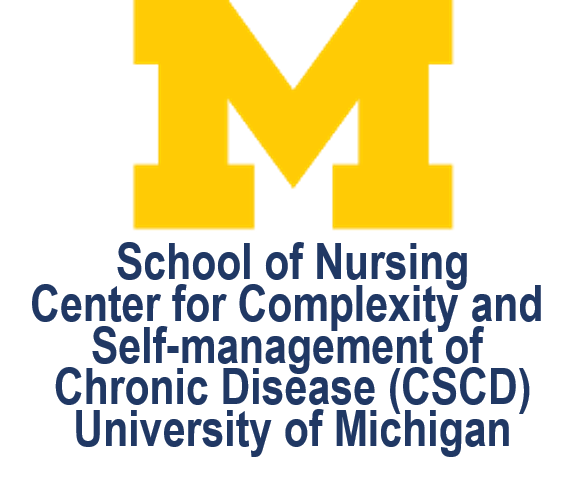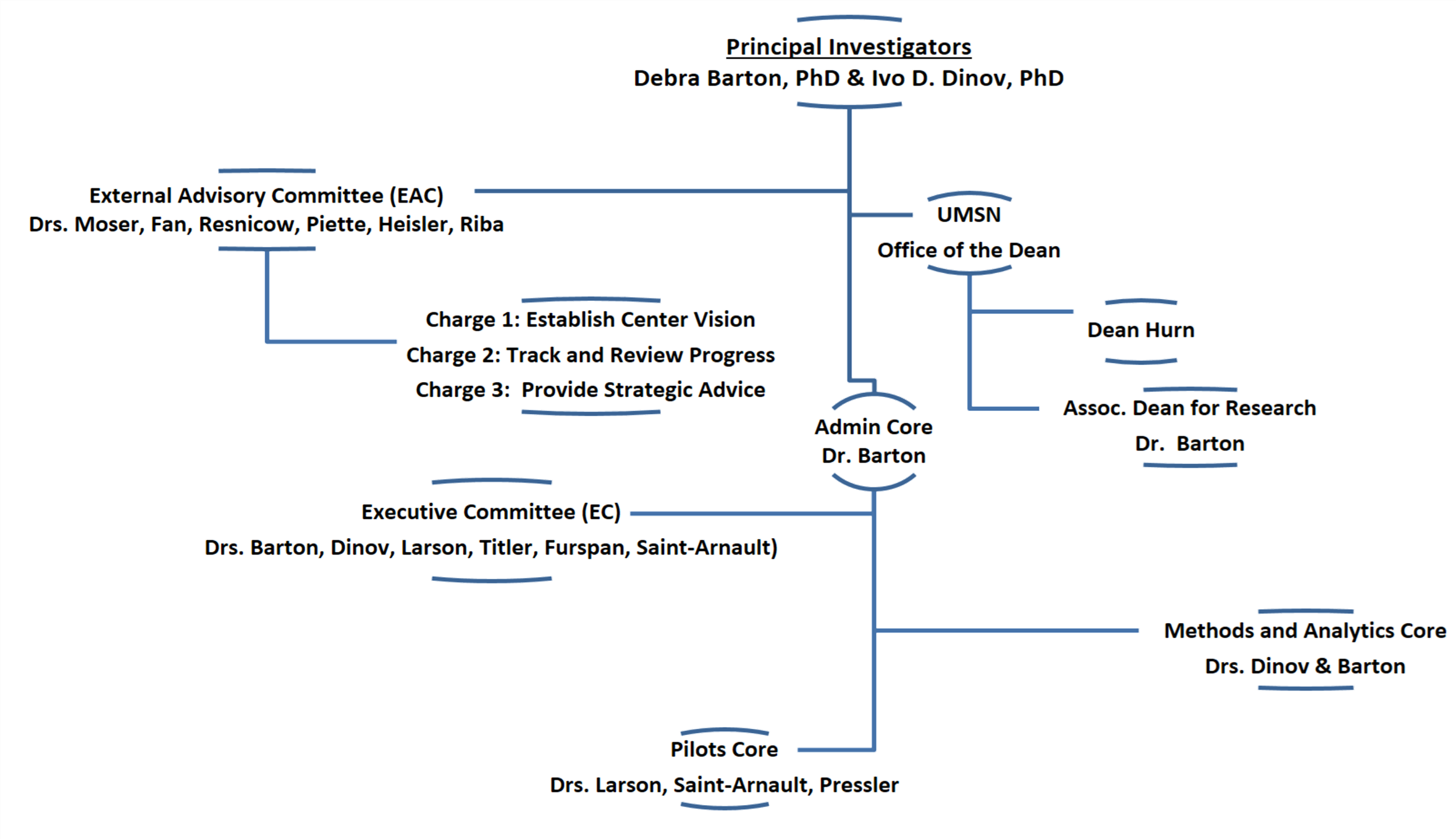
The overarching aim of the Center for Complexity and Self-management of Chronic Disease (CSCD)
is to advance the science of self-management (SM) by addressing complexity, including the study
of complex multi-component interventions and SM for people with complex comorbid conditions.
In addition, the Center provides the infrastructure to facilitate interdisciplinary approaches
and expand the pool of investigative teams who are equipped to successfully develop and implement
externally funded programs of research in self-management.
The Center theme is “Leveraging complexity to improve health outcomes through self-management.”
As knowledge and technology addressing disease advance, and the focus on health promotion and
illness prevention continues to lag behind, the burden of chronic illness burgeons. Chronic
illness in areas such as cardiovascular, lung, kidney and endocrine diseases is common, and
advances in medicine have enabled the relabeling of cancer and HIV as chronic conditions.
For example, in 2014, there are estimated to be over 13 million cancer survivors and more than
1.1 million survivors living with HIV. However, even more critical than the increase of
chronic illness is the prevalence of multiple chronic conditions.
The facts are sobering:
- More than 1 in 4 Americans have two or more chronic conditions, defined as lasting over a year
and limiting activities,
- Over one million die from chronic illness yearly, and
- 80% of Medicare spending is on patients with four or more chronic conditions and these
costs increase exponentially with multiple conditions.
Improved self-management is one solution to abate the rising cost of healthcare and improve
the health outcomes in those with multiple chronic conditions. Self-management is one of the
goals of the Multiple Chronic Conditions Strategic Framework, is one of the six components of
the Chronic Care Model, and is defined by the Oxford dictionary as “taking responsibility for
one’s own behavior” and well-being in this case.
CSCD investigators contribute innovative methods and practice to self-managmeent science
by addressing
complexity in three ways:
- Promoting research in populations with multiple chronic conditions (MCC).
The Institute of Medicine (IOM) cites MCC as a target with the potential for high impact with regard to
society’s health and health costs (The Institute of Medicine. Living Well with Chronic Illness: A Call for Public Health Action. 2012. The National Academies Press, Washington DC; ISBN 978-0-309-22127-6).
- Promoting research that evaluates multi-component interventions and delineates critical
components of those interventions for effectiveness.
- Promoting novel designs and analytics to appropriately address complexity in the
research for the two areas outlined above.
The Center for Complexity and Self-Management of Chronic Disease utilizes three cores to meet
its objectives: an Administrative Core (ACORE), a Pilot Core (PCORE) and a Methods and Analytics
Core (MACORE). The ACORE provides the basic infrastructure, oversight and evaluation support,
the PCORE enables the processes of generation and review of the science and mentorship
of investigators, and the MACORE facilitates the “nuts and bolts” of the innovation that
are applied to the Center activities to advance the science of self-management within
the context of complexity. The MACORE content also providea a more granular level of
information in order to demonstrate the Center’s ability to fulfill its overall purpose.
The Center’s main office in the UM School of Nursing, within the University of Michigan Health System, is where the Center Administrator, the Center Directors
and all the PI’s from all three Cores are housed.

To acknowledge support from CSCD in presentations, reports and publications use the following text:
“Partial support for this research was provided by the NIH’s National Institute of Nursing Research
(Grant P20-NR015331) and the
Center for Complexity and Self-Management in Chronic Disease.”
 The overarching aim of the Center for Complexity and Self-management of Chronic Disease (CSCD)
is to advance the science of self-management (SM) by addressing complexity, including the study
of complex multi-component interventions and SM for people with complex comorbid conditions.
In addition, the Center provides the infrastructure to facilitate interdisciplinary approaches
and expand the pool of investigative teams who are equipped to successfully develop and implement
externally funded programs of research in self-management.
The overarching aim of the Center for Complexity and Self-management of Chronic Disease (CSCD)
is to advance the science of self-management (SM) by addressing complexity, including the study
of complex multi-component interventions and SM for people with complex comorbid conditions.
In addition, the Center provides the infrastructure to facilitate interdisciplinary approaches
and expand the pool of investigative teams who are equipped to successfully develop and implement
externally funded programs of research in self-management.